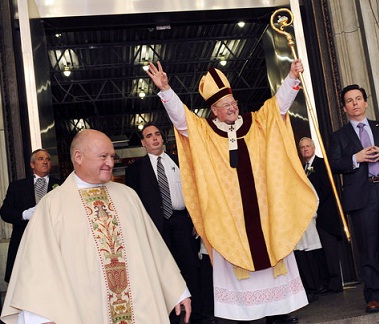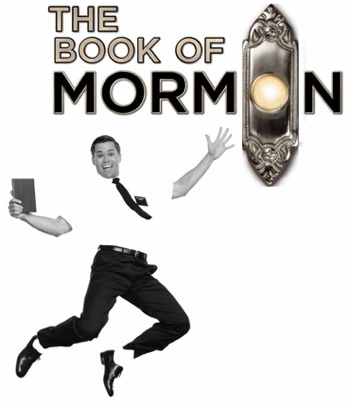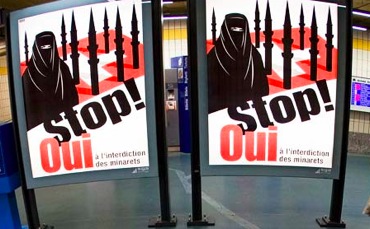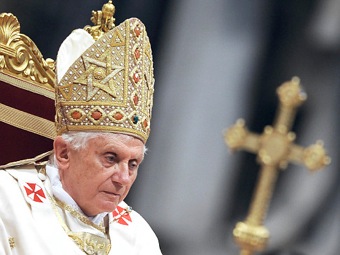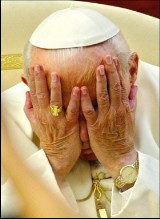This is pretty long, so:
intro
basic review
anti-semitism
adherence to gospel
violence
love vs. violence
conclusion
Introduction
So much has been made of this film's possible anti-Semitism, sustained violence, and approach to Jesus' teachings, that most reviews have, in many ways, been meta-reviews, dealing with issues about the movie, instead of the movie itself. As other reviewers have noted, this seems to be because it is almost impossible to get any kind of emotional distance from the film: if you are Christian, you're likely to be too overwhelmed by the depiction of suffering to make much of a qualititative judgment, and if you're not Christian, the media coverage of the film has made it difficult not be skeptical before you've seen even a frame.
That said, before looking at some of the meta issues, I'll attempt to offer a conventional review of the film. [Or, skip to the meta analysis now.]Qualitative Review
The movie is well-made, but the Hollywoodization of its story and style are evident throughout. Gibson provides nuances like character motivation and scenic details where the Bible offers none, and he spices up his narrative with flashback scenes that -- had they actually appeared in the Bible -- would have to have been written something like, "And then Jesus remembered the time..." (If you think about it, it takes quit a lot of nerve to allow your script to present what Jesus was thinking about at any given time, especially when he's lying face down in the dirt with a cross on his back.) Regardless of these liberties (the impact of which I'll get to later), the film is engaging throughout, although the number of people leaving the theater once the scourging started is a clear indicator that the violence may be too much for some people.
On the whole, the acting in the film is fine, and never noticeably bad, although with everyone speaking in Aramaic and Latin, it's tough to pick up on the subtleties of some of the performances. The only character who even gets a chance to do much hammy scenery-chewing is Herod (and maybe Caiphas), and although Herod strikes me as a sort of Galilean Liberace, his performance strikes a remarkable contrast with both Jesus's silence before him, and with Pilate, for whom practicality is a defining trait. Jim Caviezel is fine as Jesus, and although much has been made of his non-Semitic appearance, he blends in well enough with his disciples, who are cast more appropriately. His manner is calm, stoic, and confident, but he usually hits the emotional high notes when called for. It's virtually impossible to ask an actor to portray how Jesus felt when he asked God, "Why have you forsaken me?" so it's enough to see Caviezel give it his best effort, which is more than passable. Regardless, it's far better than the performances in Scorsese's Last Temptation of Christ which threw a bunch of New Yorkers into Jerusalem and expected them to appear and sound native.
Stylistically, the film is like most big-deal Hollywood dramas: a few compelling shots mixed in with a lot of conventional ones. The scene in which Jesus is arrested at Gethsemane is probably the most visually interesting, with the cold blue of the night punctuated by the soldiers' torches as they make their way towards an expectant Jesus. The scenes of Jesus on the cross are photographed well, too, though not as iconically as you might expect. Most of the other shots are standard, and the editing is as well. It's possible the filmmakers did this so as not to distract from the story at all, but I wish they had taken a few more chances. The set design is similarly non-intrusive. Only Herod's quarters are distinctive, and that is mainly due to the leopard and exotically-dressed attendants who are the subjects of a few too many reaction shots.
All in all, it is a good film, not a great one. Had Gibson taken a few more chances and given some of his actors a chance to shine through a bit more, it might have been the better for it. Although I think it's possible for a film about Jesus to transcend itself, this film does not, though at times it comes close.
Now, on to the meta-analysis.
Anti-Semitism
Before discussing whether the film is anti-Semitic, I want to first define that term as I intend to use it. In the context of movies, I think anti-Semitism can be loosely defined as the uncritical use of negative stereotypes about Jewish people, the advocacy of hatred towards or bigotry against Jews, or, in the case of a film like this one, the promotion of the idea that the Jews, as a religious/racial/ethnic group, were and/or are responsible for the death of Christ. (I acknowledge my definition may not be not be exhaustive for all cases, but maybe it suffices for this context.)
The film portrays its Jewish characters in one of two ways: as a mob who is deeply offended by Jesus's teaching and actions, or as kind and sympathetic characters who go out of their way to help Jesus, even though they do not necessarily believe he is the Messiah. With the exception of Caiaphas and his fellow high priests, the characters who call for the crucifixion of Jesus are mainly depicted as a mob, not as individuals. I think this shows the effect that the mob mentality had on the group, and serves as a partial explanation for their behavior, not as an indictment. Also, the film includes dialogue both to and from Caiaphas that clearly explains that Jesus's actions "violated the Sabbath" and that he threatened to destroy the temple. In other words, the people's desire to see Jesus punished is explained. From our perspective today, we can see that Jesus meant no harm, but I think at the time, both the priests and the religious devotees must have felt not just threatened, but deeply offended by Jesus' words and actions. Our society has become so secularized that it's hard to imagine wanting someone to be so brutally punished for offending us morally, but look at the outraged, hateful reaction of many Americans to same-sex marriages in recent days even as they claim to be defending "sanctity," and it's clear how emotions can interfere with judgment when one feels his religious beliefs are under attack. I think if Gibson had intended to portray the Jews as savage and bloodthirsty, he would have omitted these explanations, or at least have left them more vague.
And this is exactly what he has done with his portrayal of the Romans. Although it is a Jewish high priest who advocates the death of Jesus, it is a Roman governor who allows it to happen, and Roman guards who perpetrate the unspeakable violence against Jesus. Nearly all Romans in the film are portrayed as bloodthirsty sadists who take delight in beating and torturing Jesus with increasing cruelty and an absolute lack of remorse. The gleeful expressions on the guards' faces as they whip Jesus with thick saplings and then metalized whips are some of the most disturbing and unforgettable images in the film and make the violence even more unbearable and inexplicable. Pilate repeatedly and publicly declares Jesus to be innocent, and the guards' superior officer asks them to punish -- but not kill -- Jesus, and yet they beat, torture, and humiliate Jesus from the moment they get their hands on him and do not stop even after he is dead, when they thrust a spear into his side. Despite repeated warnings from their superior officers, they continue their assault on his body and mind, seemingly unable to quench their bloodlust. The negative portrayal of Romans in this film is far more one-sided and critical than its depiction even of Caiaphas, who at least had a reason to advocate the punishment of Jesus. Even the mob of Jews calling for his death have mass psychology as an excuse: the Roman soldiers can't even claim they were "just following orders." Merely arguing that the Romans are portrayed in a more negative light than the Jews does not establish that the film is not anti-Semitic, but I think the fact that Caiphas is shown to offer a rationalization for his followers' attitude may help to make that point.
But, of course, there are other indications that the film may be anti-Semitic. For instance, nearly all discussions of this film's portrayal of Jews mention the line of dialogue in which the Jewish crowd says, "May his blood be on us and on our children." Under pressure from various groups, Gibson eventually cut this line, but I have read that the line is still actually spoken in the film in Aramaic, but the subtitle translating it does not appear. The line comes from Matthew 27:25, but is given some context by the previous verse, in which Pilate famously abrogrates his responsibility as he tells the crowd, "I am innocent of the blood of this just person. You see to it." By responding the way they supposedly did, the crowd seems to be accepting responsibility for Jesus' death. If Gibson had depicted this, would that have made it anti-Semitic? I guess that depends on whether you think the line was actually spoken by the crowd. If it was, then it would be tough to argue that including it would be an anti-Semitic gesture. But if Matthew made it up as a means of spreading hatred towards the Jews (who he believed killed his Messiah), then including the line in the film would be an anti-Semitic gesture, at least according to my definition, since it would be intended to assign perpetual blame to the Jewish people. And so now we hit upon the obvious problem: without corroboration (the line does not even appear in the other Gospels), it is unknowable whether this line was spoken or heard by anyone at the scene. (Unless you believe the Gospels were aided by divine intervention, and are infalliblly accurate, a belief that's hard to maintain in the face of various contradictory accounts contained in the Gospels.) So given the uncertaintly over whether such an inflammatory comment was made, should Gibson have included it, either with subtitles or without? In my opinion, no. The presence of the line can only serve to divide, and opens the door to charges of anti-Semitism, which can only further divide. Gibson was right to remove the subtitle, but that move by itself is a cop-out, an insincere gesture. He should have deleted the line completely.
Adherence to the Gospels
Certain Christians, in their efforts to defend the film and Gibson against the charges of anti-Semitism, have said, loudly and ad nauseam, "It's in the Bible!" as if that answers everything. This is an invalid argument for many reasons that are probably obvious to non-believers but may be difficult to grasp for others. I believe that it is possible to believe in the general account of the Gospels, but still find that Gibson's film is anti-Semitic. In fact, one has very little to do with the other. There are two primary reasons for this: (1) the Gospels, while a testimonial of what happened, are a product of their time, and not necessarily infallible, and (2) Gibson took many artistic liberties with the Bible elsewhere in the film, and in doing so, invalidates the "it's in the Bible" argument completely, since he both fails to portray everything that's in the Bible and presents many things that are not in the Bible. In other words, he picked and chose what he wanted to include, and what he didn't. Therefore, the depictions of Jews, Romans, and everyone else were subject to his interpretation. I realize that this point is blatant to non-Christians, but I cannot even count how many times I've heard an uncritical defense of the film from fellow Catholics, and so I want to answer the argument here.
Defenders of the film can only rely on the "it's in the Bible" argument if Gibson offered a strict depiction of the Gospel accounts, and used no artistic discretion whatsoever. Anything added or omitted by him is by its nature subject to debate. This includes any characterization, dialogue, or physical behavior not explicitly mentioned in the Bible. It even includes the ways that Gibson deals with certain ambiguities in the Gospels. Take, for instance, the crucial moments in which Pilate washes his hands and the crowd utters the "his blood be on us" line. Matthew 27:24-25 reads:
When Pilate saw that he could not prevail at all, but rather that a tumult was rising, he took water and washed his hands before the multitude, saying, "I am innocent of the blood of this just Person. You see to it."And all the people answered and said, "His blood be on us and on our children."
So who is the "you" in the sentence "You see to it"? It sounds like it's the crowd, right? Not in Gibson's movie. In the film, Gibson addresses the first part of his statement to the crowd, and then says "You see to it" to an assistant. It seems like a small thing, but if he said it to the crowd, wouldn't it seem like he was
commanding them to kill Jesus? In Gibson's interpretation, it seems like the crowd is commanding
him and he in turn commands his assistant to take care of it. Gibson's decision to portray the moment this way is one of several in which he is more sympathetic to Pilate than he is to Caiaphas and the Jewish crowd. Perhaps this small detail isn't enough to make the point that Gibson's interpretation (not that of the Gospel authors) colors the depiction of Jesus's persecutors, so consider a much greater bastardization of the Gospels that appears to have been almost entirely invented by Gibson: the role of Claudia, Pilate's wife. We first see Claudia waking up in Pilate's bed, as if startled. This is explained in Matthew 27:19:
While he was sitting on the judgment seat, his wife sent to him, saying, "Have nothing to do with that just Man, for I have suffered many things today in a dream because of him."
Fair enough -- even if you set aside the question as to how Matthew would have been privy to this exchange -- but Gibson goes on to imagine a whole dialogue between the two of them in which Pilate bares his doubts and insecurities to her as she looks at him searchingly. He asks her how she knows what truth is, and she answers him. Later, as he prepares to send Jesus off to be scourged (so as to appease the crowd and avoid crucifying him), he looks at Claudia several times, as if to strengthen himself against the crowd. None of this is in the Bible, and yet all of it serves to make Pilate a more sympathetic character. He gave in to the Jews despite his own better judgment, he had no choice, etc., the film seems to say. Where are the scenes in which Caiaphas shares his deepest emotions with his wife or his friends, and says he has doubts about whether to kill Jesus? The Bible says the high priests decided it would be "expedient" to sacrifice someone (much as Pilate did), so why doesn't Gibson portray the scenes where this is discussed? Because they're not in the Bible? Well, neither is the extended exchange between Claudia and Pilate. Later, as Jesus is being scourged, a teary-eyed Claudia brings towels to Mary, who exchanges meaningful glances and uses the towels to soak up her sons blood. Where is all this in the Bible? The inclusion of non-Biblical scenes that serve to make certain characters sympathetic and others unsympathetic should have been avoided, especially if Gibson later wanted to rely on the "it's in the Bible" argument.
Gibson also apparently manufactures several other incidents that (as far as I can tell) cannot be found in the Bible. The most noticeable of these is his treatment of Satan, who is embodied by a female actress, but voiced by a male one. According to John 13, Satan enters Judas at the last supper, but Gibson assigns Satan some extra-curricular activities that are not included in the Bible. Satan visits Jesus as he prays alone at Gethsemane and attempts to undermine his confidence. (I thought this was in the Gospels, but I couldn't find it. One gospel says an angel shows up and helps him find strength.) But then, a snake crawls out from between Satan's legs and Jesus stomps on it. Satan later shows up as Jesus is being scourged and as he's carrying his cross, all of which seem to support the general theme that evil was among the guards and the crowd, but this interpretation is not supported by the Gospels. But no matter how liberal your interpretation of the gospels might be, nothing could prepare you for perhaps the oddest of Gibson's amendments to the Bible. As Judas contemplates his suicide, he is viciously taunted by some children who transform into grotesque "little Satans" (his words) with distorted features who eventually start biting his arm. What chapter and verse is that one, Mel? I'm still looking. Soon after, a group of these devil children chase/lead Judas up a hill where he hangs himself next to a rotting, maggot-infested animal. The satanic-children motif pops up again in the scourging scene as Satan walks by carrying what appears from the back to be a large infant caressing Satan's gray face. As Jesus looks up at the pair, the infant turns its head, revealing itself to be a grotesque, unnaturally aged creature -- a cross between an old man and a baby. All effective imagery, but once you start throwing stuff like this in your film, how can you, or your defenders, rely on the "it's in the Bible" argument for anything?
Similarly, when the Gospels conflict on certain matters, Gibson tends to take the path that is narratively expedient. For example, in Matthew 27, both robbers on the cross next to Jesus "revile him," but in Luke 23, one of the robbers asks Jesus to remember him when he enters His kingdom, and Jesus tells him he will. Gibson goes with Luke's version. In John 19, Mary, her sister, and Mary Magdalene are present at the cross. Mark 15:40 has a slightly different cast of characters, but notes that they watched from "afar." In Gibson's version, Mary spends the entire crucifixion period right next to Jesus. She is there when the soldier offers the vinegar on the sponge to Jesus, and Jesus says "I thirst" to her, although according to John 19:27, she left immediately before that incident. Gibson's narrative also projects itself into Mary's mind during Jesus' carrying of his cross. As she watches him fall, she remembers his falling as a boy and how she ran towards him. This memory inspires her to find the strength (after her "swoon") to run up and comfort him. The moment is awkward, both because you're wondering whether it's necessary to show a mother's motivation for running to aid her son, and you're trying to remember back to the early parts of the Gospels to the time when young Jesus was running and tripped. (Keep looking.) The incident is one of several that borrows heavily from the Catholic ritual of the Stations of the Cross, a ritual rooted more in tradition than the Gospels. (Only about half of the "stations" are depicted in the Bible). In any case, it's disingenuous to pick and choose the parts of the Gospel that suit your story-telling goals, then fall back on the Bible as a defense of your depictions. It is also disingenuous for defenders of this film to accept scenes like these and then argue that Gibson was merely portraying what the Bible says. I want to make it clear that I think it's fine that Gibson took artistic liberties with the Gospels. I just think it's wrong for anyone to then argue that everything in the film is justifiable because it adheres to the Bible.
Violence
Much, too, has been made of the violence in the film, and whether it is appropriate or necessary. I feel that Gibson may have strayed too far from his Biblical sources, but the violence itself is essential to the film's religious message. (n.b. I'm choosing to respond here to the argument that the film is unnecessarily violent, setting aside for now the idea that the violence does not belong because it is not detailed in the Gospels, a position that I think is reasonable, but one which I haven't actually heard anyone take. At this stage, I'm also going to begin evaluating the film more as a religious work, and less as a conventional film.)
The central point of the film is that Jesus suffered and died for us. It opens with a quote from Isaiah 53 ("by his wounds we are healed") that attempts to establish a context for what we are about to see. For non-Christians, it is apparent that the film is so violent, it's not really worth sitting through, because it is merely a film about a man being tortured, but for Christians, I think the film reminds us of something that has been too easy to forget: the extent of Jesus' suffering for us. Christians who object to the violence in the film might argue "We know he suffered for us...so why do we have to see it?" I would ask these people, particularly if they are relatively well-off in life, to consider just how much they truly understand what suffering in the name of God is. Though he was the son of God, Jesus showed us through his intense suffering just how much a human can endure and, compared to what he went through, what we are asked to do is not really all that difficult. In Mark 8:34, Jesus says:
Whoever desires to come after Me, let him deny himself, and take up his cross, and follow Me. For whoever desires to save his life will lose it, but whoever loses his life for My sake and the gospel's will save it.
Jesus showed that a man can take up a cross in the most literal sense, and bear physical and psychological torture while still maintaining faith in God. Although Jesus had doubts about being "forsaken," he still gave himself over to God, a sign of faith far exceeding anything we are asked to endure. In portraying the violence, Gibson reminds us of what Jesus sacrificed for us and for God, and puts our own pain in perspective. I think Gibson's intention was to shock the audience a bit, so they would wake up and be cognizant of the reality of Jesus's pain. In a time when "Christian" has in many ways become more of a political label than a religious one, I think it's important for people who identify themselves as Christian to take a step back and consider what that means in their daily lives. In Catholicism, the notion from
James 2 that "faith without works is dead" is a central tenet. You can follow all the rules of the Church, but unless you actually do things to help other people, you cannot really consider yourself Catholic. I think that in recent times, this idea has been overlooked. Everyone is so concerned about getting to Mass on time and not eating meat on Fridays that they forget that Catholicism is really about putting others before yourself, and doing everything possible to help them, even when that means bearing hardship yourself. In other words, you must give up your life to save it. It's difficult for us, but Gibson depicts Jesus doing exactly that in his film, and offers him (as Jesus offered himself) as an example to follow. On top of that, as a culture, many of us have forgotten what suffering is. We don't weart hair shirts or self-flagellate anymore, so how are we supposed to understand Jesus' suffering on any kind of profound level? If the violence were not portrayed as it is, would the message come through as clearly? I don't think so. Without presenting shocking images, Gibson would have risked a complacent reaction from his audience, and I think that was exactly what he hoped to avoid. In fact, I think the whole point of the movie was to wake people up and say, "This is what Jesus did. What does that mean to you?" Answering that question, I think, is a meaningful way of exploring one's Christian identity, and I think that for too long, people have avoided it.
Violence vs. Love
Several reviews have complained that the film all but ignores Jesus' teachings and concentrates on his suffering. Although it's my belief that his suffering is an essential part of his teachings, I want to point out that the film does present Jesus' message of love and forgiveness throughout. Repeatedly, he utters the "Forgive them for they know not what they do" prayer, referring to both the Jews and the Romans, and in flashback, he is seen preaching to the disciples about forgiveness and love, including the "Love your enemy" speech that is critical to the concept of Christianity. Although few in number, these moments are made all the more potent by their sharp contrast to the violence that permeates the rest of the film, and they serve to show Jesus' message, and, I think, to tell both his disciples and the film's audience to forgive those who were responsible for his suffering.
There are other emotionally resonant scenes that convey love and kindness, and these show some aspects of Jesus existence that are often missing from other accounts. First, Simon, who helped Jesus carry his cross, was picked at random from a crowd of onlookers. It is not clear whether he believes Jesus is the Messiah, but it's implied that he doesn't. Nonetheless, as he carries Jesus' cross, he begins to understand his suffering, and at one point, angrily defends Jesus from the assault of the guards and the surrounding mob. Although Simon exists in the Gospels, this is more dramatic license from Gibson, but it shows Jesus as a human, deeply in need of another human's love and assistance. Simon is presented as one of the most admirable characters in the film, and it should be pointed out that he serves as a counterbalance to some of the portrayals of other Jews (namely Caiaphas) in the film. The other relationship that clearly shows Jesus as a man is his relationship with his mother, Mary. Unlike Jesus' disciples, Mary is motivated by love, not worship or religious belief. This is clear in nearly every shot that she looks at her son, and it helps the audience to see Jesus as a human, too, a perception that can be overlooked when reading accounts of miracles, resurrections, clairvoyance, etc. Mary's constant presence at Jesus' side grounds the film, and engages us in his suffering (and hers) in a way that otherwise would not be possible. Since many accounts of Jesus are intended to put us in awe, it's a refreshing change to look at him, in a sense, through his mother's eyes.
The themes of love and suffering combine when Jesus speaks of his choice to take up his cross and die for us. He says he does it out of love for his disciples. The fact that it was his choice is another critical element of Christianity, in part because, as I mentioned earlier, it provides the ultimate lesson for his followers. Reviewers who say that his message of love is missing from the movie should consider that Jesus didn't endure this torture just for the sake of being tortured. He did it in an attempt to show what love really is, and he (and Gibson) makes this explicit in the film.
Conclusion
Although Gibson takes some questionable artistic liberties with his source material and is less circumspect in his portrayal of the some Jewish characters than he might have been, the film is an engaging depiction of Jesus' final hours, and in certain cases illuminates relationships and incidents in new ways. It is understandable, but unfortunate, that the movie has led to further divisions between Christians and Jews, as the film might have been a strong ecumenical tool. Although many Christians are touting it as an evangelical resource, its graphic violence seems more likely to bolster the beliefs of existing Christians rather than encourage non-Christians to join the faith.
